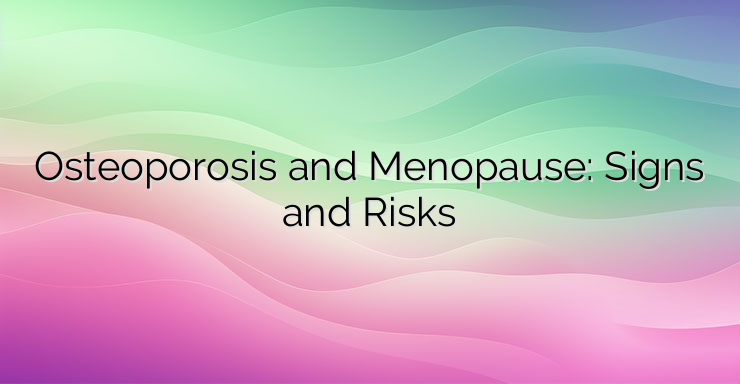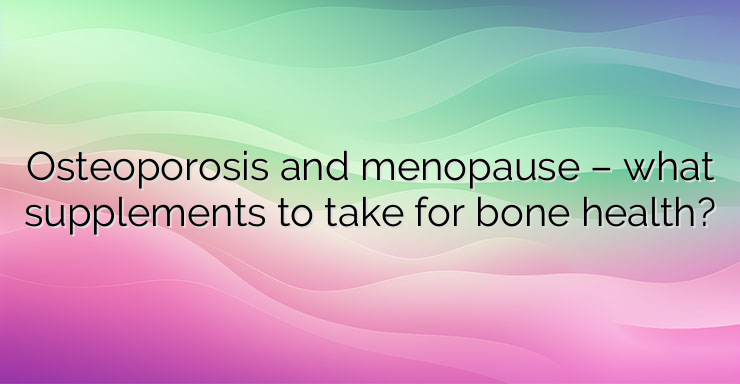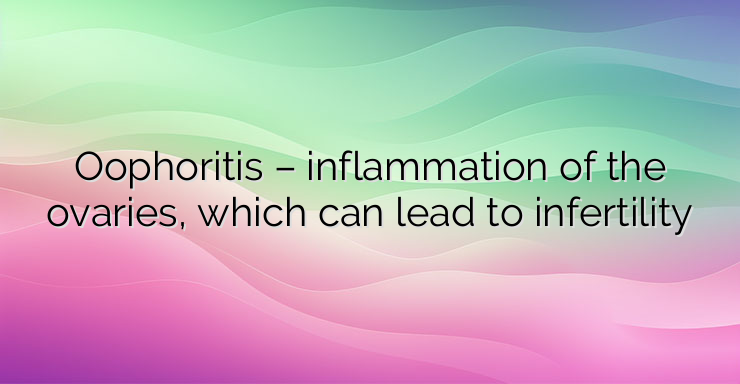Blog TrustedTablets pharmacy
-

Since when do women have eggs?
The ovaries are small, oval glands located on either side of the uterus. They produce and store eggs and produce hormones that control the menstrual cycle and pregnancy. During ovulation, one of the ovaries releases an egg. If a sperm fertilizes this egg, pregnancy occurs. The ovaries continue to release an egg each menstrual cycle…
-

Osteoporosis and Menopause: Signs and Risks
Why is osteoporosis associated with menopause? There is a direct link between lower estrogen levels during the premenopausal period and menopause itself, and the development of osteoporosis. Early menopause – before the age of 45, and any prolonged periods when hormone levels are low and periods are absent or irregular – can cause bone loss.…
-

Osteoporosis and menopause – what supplements to take for bone health?
Calcium Calcium needs are usually met through regular consumption of dairy products and calcium-rich mineral waters, but calcium supplements also contain different chemical forms of this mineral such as carbonate, citrate or gluconate. They are considered to contribute to the maintenance of bone health provided they contain at least 120 mg of calcium per 100…
-

Oral contraceptives affect fear coping
A new study by Canadian researchers has found that birth control pills can affect brain function in women. The study examined the effects of oral contraceptives on the thickness of a specific brain region known as the ventromedial prefrontal cortex (vmPFC) and its potential relationship to emotional regulation in women. Specifically, birth control can change…
-

Complaints after conization
A cone biopsy (conization) is a procedure in which surgeons remove a cone-shaped wedge of abnormal tissue from the cervix. The tissue is sent to a lab to be tested for precancerous or cancerous cells. It is often performed after an abnormal Pap test. Cone biopsy (also known as conization or cold knife biopsy) is…
-

Oophoritis – inflammation of the ovaries, which can lead to infertility
Oophoritis is an inflammatory process of the ovaries. The disease can be unilateral or bilateral. It often occurs with simultaneous inflammation of the fallopian tubes, in acute or chronic form. With acute inflammation, there are pronounced pains in the lower abdomen, fever, dysuria and white vaginal discharge. The chronic form is characterized by pain syndrome…
-

Normal birth after Caesarean section – when is it possible? Does it have risks?
The possibility of a vaginal birth after a previous cesarean section is an important issue for many reasons. Normal childbirth is more physiological, so the recovery period is shorter. The woman in labor feels strong and stable to take care of the newborn immediately after birth. Complications in the form of infection, excessive bleeding, venous…
-

Is it normal for menstrual bleeding to be a different color?
Around the age of 12, the first menstruation (menarche) occurs, and menopause, the final cessation of ovarian function, occurs at approximately the age of 50. This is the reproductive period of a woman. Usually, the menstrual cycle begins with the first bleeding and ends by the first day of the next period. On average, it…
-

Low prolactin levels
Prolactin is a hormone that is responsible for lactation, the development of certain breast tissue and the production of breast milk. Higher than normal levels of prolactin in the blood can cause certain symptoms, such as irregular periods, infertility and erectile dysfunction. Prolactin (also known as lactotropin) is a hormone that is responsible for lactation,…